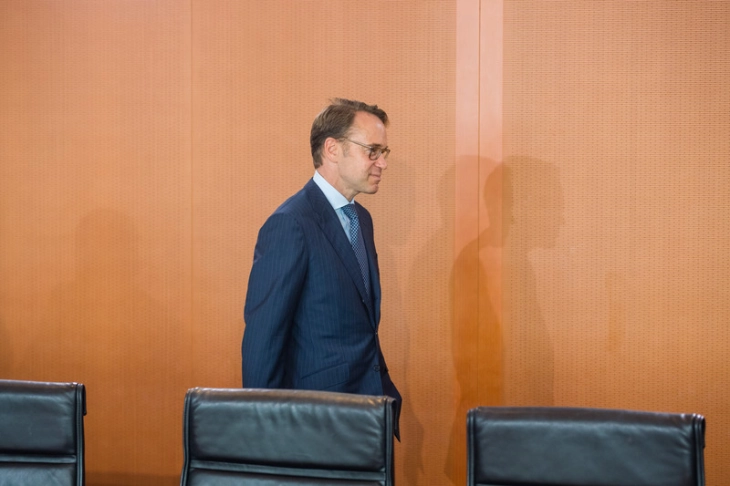German Bundesbank President Weidmann to step down at end of year

Frankfurt, 20 October 2021 (dpa/MIA) - The head of Germany's central bank, Jens Weidmann, is stepping down for personal reasons, saying that it was time for both he and the Bundesbank to "turn over a new leaf."
He had asked German President Frank-Walter Steinmeier to be released from office on December 31, he said.
"I have come to the conclusion that more than 10 years is a good measure of time to turn over a new leaf - for the Bundesbank, but also for me personally," Bundesbank President Weidmann wrote in a letter to the bank's staff.
In the message, Weidmann, 53, referred to what they had achieved together: "The environment in which we operate has changed massively and the Bundesbank's tasks have grown.
"The financial crisis, the sovereign debt crisis and most recently the pandemic have led to decisions in politics and monetary policy that will have long-lasting effects.
"It has always been important to me that the Bundesbank's clear, stability-oriented voice remains clearly audible."
The economist, who completed his doctorate at Bonn University in 1997, has repeatedly criticized the monetary policy of the European Central Bank (ECB) as too loose.
In his letter, he thanked fellow members of the ECB's Governing Council for the open and constructive atmosphere during discussions that were at times difficult over recent years. He also underlined the significant stabilizing role of monetary policy during the pandemic.
Weidmann, then the youngest Bundesbank president, took over the post in Frankfurt in May 2011 at the age of 43 from Axel Weber, who had quit in a dispute over the ECB's policy to control the crisis at the time.
While it is for the federal government to propose a successor, the current government is in office in an acting capacity following the last month's elections.
A Finance Ministry spokesman said the assumption was that the next government would take the decision which then goes to the president for approval.
Outgoing German Chancellor Angela Merkel expressed regret at Weidmann's decision. Weidmann had represented the Bundesbank nationally and internationally in an outstanding way, her spokesman, Steffen Seibert, said.
ECB President Christine Lagarde also expressed her regret. "Jens is a good personal friend on whose loyalty I could always count," she said, pointing to his great experience as the longest-serving member of the ECB's Governing Council.
Finance Minister Olaf Scholz, seen as the next chancellor if current coalition talks succeed, thanked Weidmann for his engagement over the past 10 years.
"He not only placed his mark on monetary policy in Germany and Europe over this period, but also promoted the continuing development of international finance markets," Scholz, who heads the Social Democrats (SPD), said.
Christian Lindner, head of the pro-business Free Democratic Party (FDP), one of the three parties involved in the coalition negotiations, said Weidmann had "stood for a monetary policy oriented towards stability, the significance of which is rising in the light of inflationary dangers."
Lindner, who has made clear his aim to take over the Finance Ministry, is a staunch advocate of fiscal and monetary conservatism.
Meanwhile, speculation has already started about who fill Weidmann's shoes.
Berenberg Bank Chief Economist Holger Schmieding named ECB board member Isabel Schnabel, Bundesbank Vice President Claudia Buch and Jakob von Weizsaecker, chief economist at the Ministry of Finance, among others, as possible successors.







